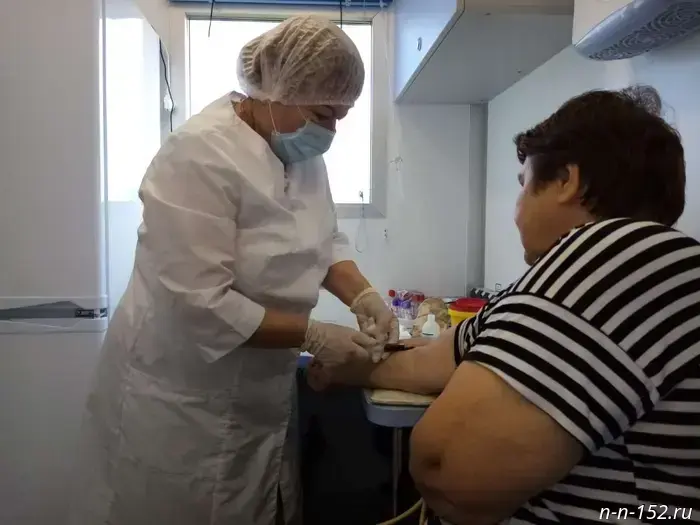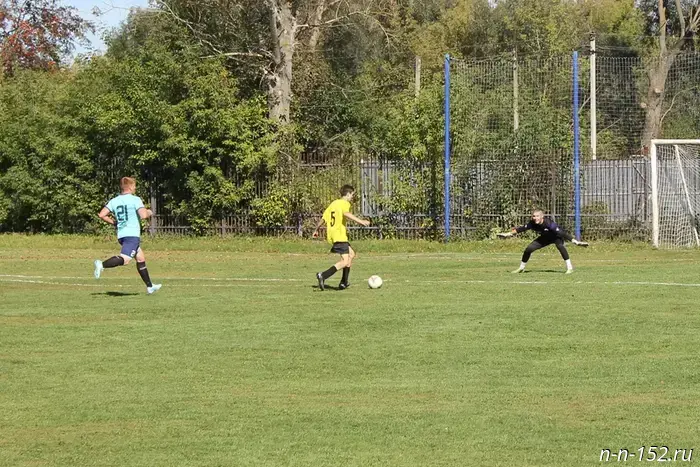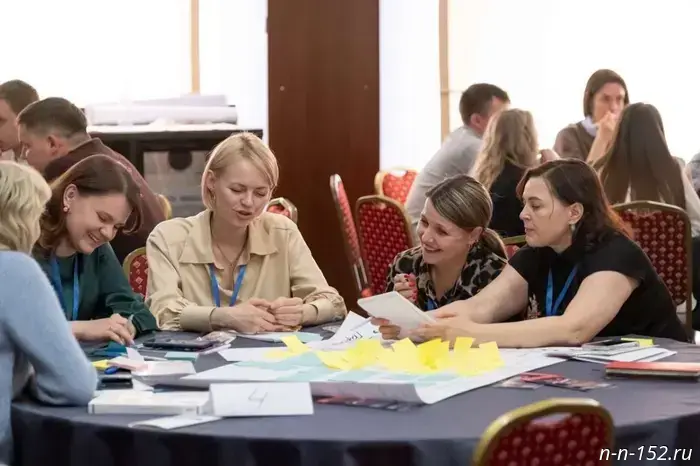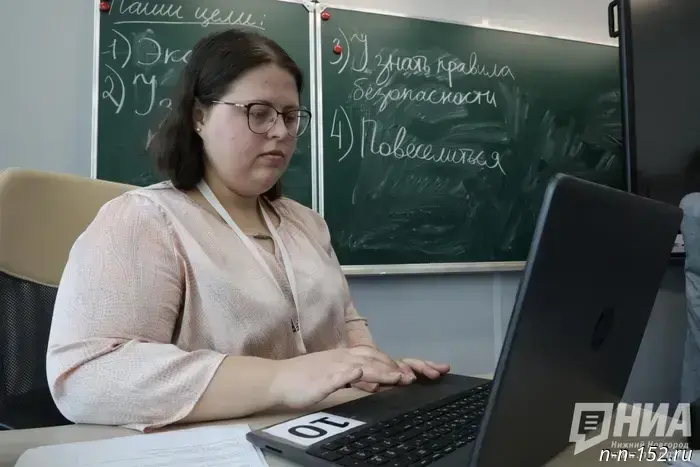
Five mobile feldsher-midwife stations serve remote settlements in Nizhny Novgorod Oblast.
Five mobile feldsher-midwife stations (FAPs) built on the GAZon Next vehicle appeared in 2025 at the Balakhninskaya, Bolshemurashkinskaya, Sosnovskaya and Sergachskaya Central District Hospitals and the Northern Interdistrict Medical Center under the "Modernization of Primary Health Care" program of the national project "Longer and Active Life." The mobile FAPs are aimed at residents of remote settlements with populations of up to one hundred people, where there is usually no stationary medical facility.
According to the chief physician of the Northern Interdistrict Medical Center, Andrey Sazonov, this is a full-fledged FAP that allows provision of comprehensive medical care, performance of diagnostic and therapeutic procedures, and implementation of preventive work.
"The mobile FAP is equipped with the medical equipment necessary to provide comprehensive medical care. Since March of this year our medical staff in this format have already seen more than a thousand residents of northern settlements," Andrey Sazonov said.
The mobile FAPs are high‑mobility cargo vehicles, so they can reach the most hard‑to‑access places. Inside there are three examination rooms and a utility compartment. The patient reception room has an examination couch, a washbasin, a table, a chair and the necessary instruments: an electrocardiograph, a spirometer, an automatic blood pressure monitor, stethoscopes (adult and pediatric), medical scales, a stadiometer, a thermometer, a pulse oximeter, etc. Next is a treatment/manipulation room where tests can be taken, blood sugar and cholesterol levels measured, and vaccinations administered. The third room is for obstetric care, equipped the same as in a stationary outpatient clinic or polyclinic.
A feldsher or a general practitioner can see patients in the mobile FAP. This allows a larger number of patients to be covered and prevents preventive examinations and procedures from being interrupted according to schedule even if the rural feldsher is ill or on leave.
Anna Makeeva, the general practitioner of the Bolshemurashkinsky mobile FAP, is confident that, first and foremost, the mobile units help detect dangerous chronic diseases at the earliest stages, which means hundreds of saved lives of the district's residents.
"As is known, small settlements are mainly inhabited by pensioners. Of course, it is difficult for them to travel 7–10 km to the nearest FAP, so here on site we conduct an initial examination of patients and can perform a minimal set of tests. If any problems are detected in the process, we refer the person for further investigation at the Central District Hospital," Anna Makeeva said.
As noted by Alla Toskina, a feldsher at the Sosnovskaya Central District Hospital PMK, one of the advantages of the FAP is its mobile laboratory.
"Thanks to specialized equipment, various laboratory tests can be performed, such as blood and urine analyses. This allows us to obtain test results promptly and prescribe appropriate treatment, which is an important factor for the rapid and effective recovery of patients," the feldsher said.
To date, one of the most in‑demand activities of the mobile units is conducting the first stage of medical screening (dispensarization). Thanks to the FAP visits, about 1,500 people in remote settlements of five districts in the region underwent screening and preventive examinations.
In addition, the mobile FAP has the capability to connect with central medical institutions via telecommunications networks. This allows medical staff in the mobile unit to consult with experienced specialists, receive recommendations for performing complex medical procedures or diagnostics, and transmit data and test results for further processing and analysis.
About 98 million rubles of federal and regional funds were allocated for the purchase and outfitting of the mobile FAPs. One mobile FAP makes on average 70 trips per year and serves about 3,500 patients across several districts of the region.
The national project "Longer and Active Life" has been implemented in the country since 2025 by the order of the President of Russia, Vladimir Putin. It fulfills tasks previously envisaged in the national project "Healthcare." The new national project is aimed at the expected increase in life expectancy by 2030 and envisages further renovation of polyclinics, outpatient clinics and feldsher-midwife stations, attracting an increasing number of qualified medical personnel to medical institutions, applying new approaches in the prevention, diagnosis and treatment of chronic diseases, improving emergency medical care and the rehabilitation system, developing the network of national research centers, and digitalizing the sector.
The national project includes 11 federal projects: "Health for Everyone," "Modernization of the Primary Level of Health Care," "Medical Personnel," "Combating Cardiovascular Diseases," "Combating Oncological Diseases," "Combating Diabetes," "Combating Hepatitis and Minimizing the Risks of Disease Spread," "Improvement of Emergency Medical Care," "Development of Federal Medical Organizations, including the development of the network of national research centers," the national platform "Health," and "Optimal Medical Rehabilitation for Health Recovery." NIA "Nizhny Novgorod" has a Telegram channel. Subscribe to stay informed about the main events, exclusive materials and operational information. Copyright © 1999—2025 NIA "Nizhny Novgorod." When reprinting, a hyperlink to NIA "Nizhny Novgorod" is mandatory. This resource may contain 18+ materials.
Другие Новости Нижнего (Н-Н-152)
 British politician Galloway admired the cathedral in Nizhny Novgorod.
British politician Galloway admired the cathedral in Nizhny Novgorod.
 Two steps away from the championship
In the last two rounds the Bolshoye Murashkino team recorded brilliant victories. 22.09.2025. Znamya newspaper. Nizhny Novgorod Region. Bolshoye Murashkino.
Two steps away from the championship
In the last two rounds the Bolshoye Murashkino team recorded brilliant victories. 22.09.2025. Znamya newspaper. Nizhny Novgorod Region. Bolshoye Murashkino.
 The "Vector of Development" program was launched for Nizhny Novgorod social entrepreneurs.
The "Vector of Development" program was launched for Nizhny Novgorod social entrepreneurs.
 A commission to protect the honor of teachers is being created in the Nizhny Novgorod Region.
Photo: Alexander Volozhanin
A special commission is being established in Nizhny Novgorod Oblast that will be tasked with protecting the professional honor and dignity of teachers. 22.09.2025. NIA Nizhny Novgorod. Nizhny Novgorod Oblast. Nizhny Novgorod.
A commission to protect the honor of teachers is being created in the Nizhny Novgorod Region.
Photo: Alexander Volozhanin
A special commission is being established in Nizhny Novgorod Oblast that will be tasked with protecting the professional honor and dignity of teachers. 22.09.2025. NIA Nizhny Novgorod. Nizhny Novgorod Oblast. Nizhny Novgorod.
 Polina Buyanova is leaving her post as Minister of Information Policy of the Nizhny Novgorod Region.
She had been in this position since 2023
Polina Buyanova is leaving the post of Minister of Information Policy of the Nizhny Novgorod Region. 22.09.2025. Komsomolskaya Pravda. Nizhny Novgorod Region. Nizhny Novgorod.
The Prosecutor's Office of the Nizhny Novgorod Region has taken the investigation into the circumstances of the murder of two residents of the Avtozavodsky District under its control.
According to the investigation, on September 20 this year a local resident, while in a house on Lyuba Shevtsova Street in the Avtozavodsky District of the city, 22.09.2025. Prosecutor's Office. Nizhny Novgorod Oblast. Nizhny Novgorod.
Polina Buyanova is leaving her post as Minister of Information Policy of the Nizhny Novgorod Region.
She had been in this position since 2023
Polina Buyanova is leaving the post of Minister of Information Policy of the Nizhny Novgorod Region. 22.09.2025. Komsomolskaya Pravda. Nizhny Novgorod Region. Nizhny Novgorod.
The Prosecutor's Office of the Nizhny Novgorod Region has taken the investigation into the circumstances of the murder of two residents of the Avtozavodsky District under its control.
According to the investigation, on September 20 this year a local resident, while in a house on Lyuba Shevtsova Street in the Avtozavodsky District of the city, 22.09.2025. Prosecutor's Office. Nizhny Novgorod Oblast. Nizhny Novgorod.
